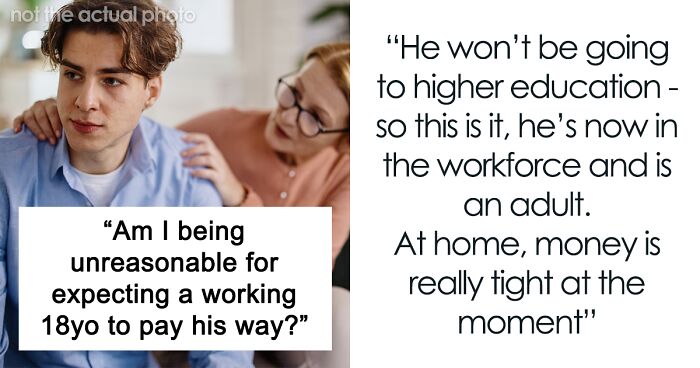
Mother Turns To The Internet To Ask If Her Son Should Pay Rent And For His Own Things After He Turned 18
Do you remember when you first moved out of your parents’ home? Perhaps you bolted out the door on your 18th birthday and never looked back. Or maybe you stuck around a few extra years until you had a degree in your hand and landed a stable, full-time job. Each family handles the “flying from the nest” situation differently, with some young adults jumping blindly and others needing an extra nudge from their parents. But when an adult is finished with their education and earning a full-time salary, what is the protocol in terms of what they can be expected to contribute to the household if they are still living with their parents?
One mother recently sparked a debate online by wondering how much is reasonable to ask for from her 18-year-old son. Below, you can read the entire post she shared on MumsNet and decide for yourself whether she should ask her son to pay up or cut him some slack. Let us know what you think in the comments below, and then if you’re interested in reading another Bored Panda piece about parents taking on the role of landlords, check out this story next.
This mother recently sparked a debate online by wondering how much her 18-year-old son should contribute to the household
Image credits: Anchiy (not the actual photo)
Image credits: Karolina Grabowska
The traditional expectation of a parent is to provide for their children until they are no longer children. In most countries, a person is considered an adult at the age of 18, so the assumption is that a young person can take care of themself from that point on. Whether that means starting their career so they can support themselves financially or moving off to university to complete their higher education, 18 is often an age of transition. Some parents might find it cold or harsh to expect young adults to become self-sufficient overnight, but in the case of this mother in particular, the parents’ financial situation should be a factor to consider.
The mother noted that her son now has a full-time job and has no plans of earning a degree. She also stated that money has been a bit tight for her and her husband. Now, I can see how it might be selfish to charge a child rent if the parents themselves are well-off or their teenager is still finding their footing in the workforce. But in this circumstance, the mother has a point. It would not make sense to fall into debt herself when her adult son earns enough money to start contributing to the household. And beginning to pay her £50 a week, as was suggested in the comments of the post, still allows him to save more money than if he had moved into an apartment on his own and had to pay the full price of rent.
The comments on this post might be so divided because of the cultural differences in the expectations of a young adult. In the United States, for example, it is extremely common for young people to move out at the age of 18. In Europe, however, the average age to fly the nest varies greatly based on the country. The country where people tend to move out at the youngest age was Sweden, with most people moving out at 17.5 years old. On the other hand, the average age to leave home in Croatia is 32.4 years old. Across all of the EU, the average age to move out is 26.4.
At the end of the day, it is completely up to the family to determine when a child should move out or begin to pay rent. Many factors come into play such as the parents’ income, the child’s income, how strong their relationship is, and what their future plans are. While this mother seems to have divided readers, only she and her husband really know the state of their financial situation. And her son does need to learn self-sufficiency eventually. Why not start with paying rent and build up from there? We’d love to hear your thoughts on this situation down below. When did you move out of the house and/or start paying rent?
Readers were divided in the comments, some parents believe all adults should pay rent while others find the idea of charging their children absurd
78Kviews
Share on FacebookExplore more of these tags
He is an adult working full time, there is no reason he should not be contributing to the household. Doesn't need to be actual rent, just something towards the bills. Not only is it fair, but will prepare him for when he does end up moving out and having to manage his own money. And for the people saying "I would never ask my child to pay anything for living in my home", that's great for you if you can do that, but as she says part of the reason this has come up is the family is struggling financially, so why should he not contribute to costs he is helping run up?
Stop paying for the frivolity items. If he wants new trainers, he's earning the money to pay for them himself. If he's working full time, consider charging rent/board but *not at market rate*, putting about half into savings for when he moves out. This teaches him fiscal responsibility, while keeping the safety net of still providing a roof and food for when he inevitably makes mistakes. He's 18 - he's a young adult, not a child, it's time to let him have adult responsibility.
None of us get to live for free as adults and it does nobody any favours to let them think that they can. Of course he should contribute to the home. I paid a third of whatever I earned as soon as I started working. He should certainly be paying for his own recreational activities.
He is an adult working full time, there is no reason he should not be contributing to the household. Doesn't need to be actual rent, just something towards the bills. Not only is it fair, but will prepare him for when he does end up moving out and having to manage his own money. And for the people saying "I would never ask my child to pay anything for living in my home", that's great for you if you can do that, but as she says part of the reason this has come up is the family is struggling financially, so why should he not contribute to costs he is helping run up?
Stop paying for the frivolity items. If he wants new trainers, he's earning the money to pay for them himself. If he's working full time, consider charging rent/board but *not at market rate*, putting about half into savings for when he moves out. This teaches him fiscal responsibility, while keeping the safety net of still providing a roof and food for when he inevitably makes mistakes. He's 18 - he's a young adult, not a child, it's time to let him have adult responsibility.
None of us get to live for free as adults and it does nobody any favours to let them think that they can. Of course he should contribute to the home. I paid a third of whatever I earned as soon as I started working. He should certainly be paying for his own recreational activities.

 Dark Mode
Dark Mode 

 No fees, cancel anytime
No fees, cancel anytime 







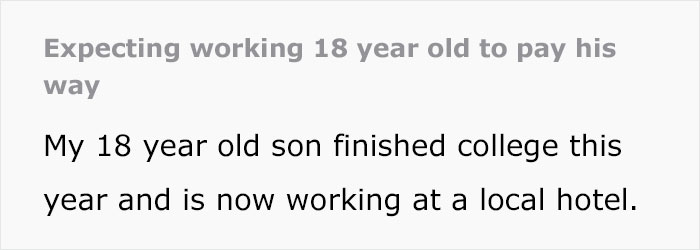
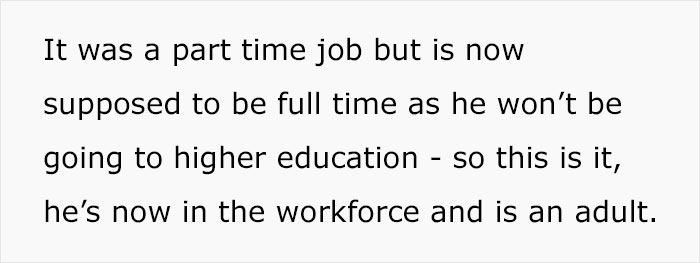
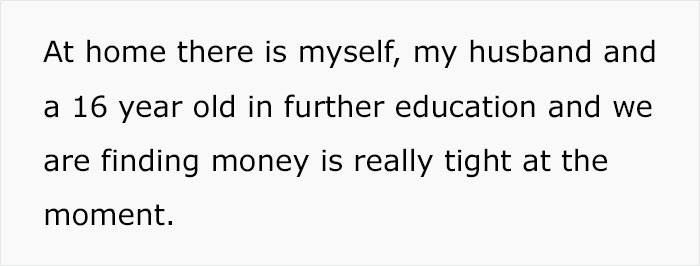
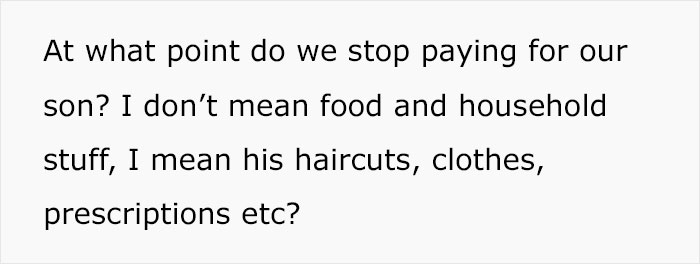
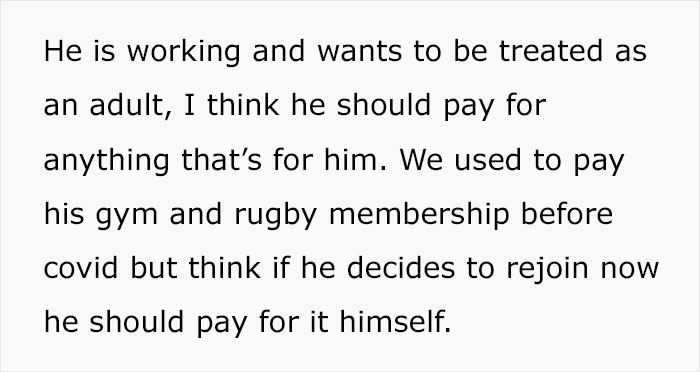
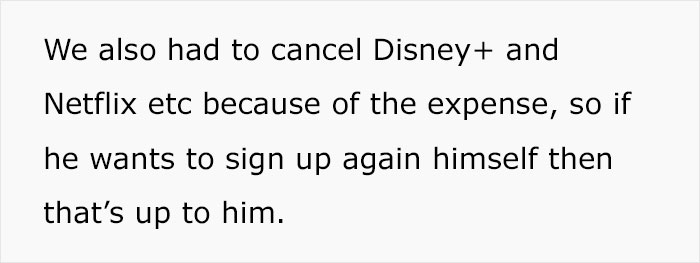
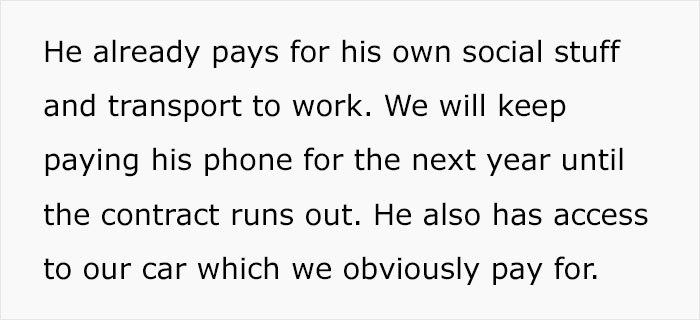








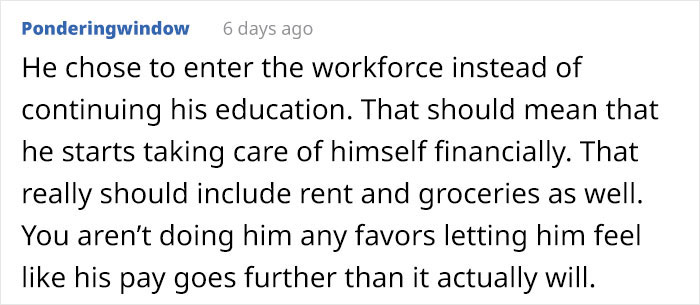




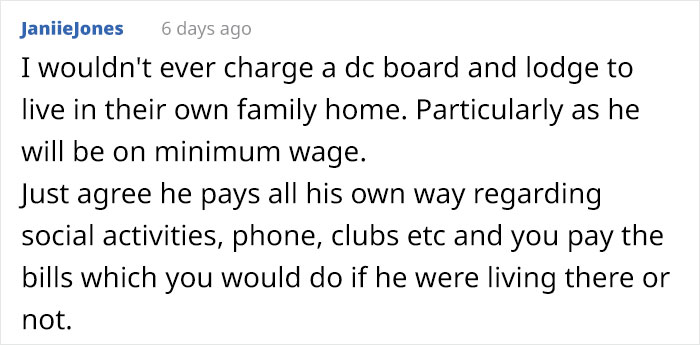
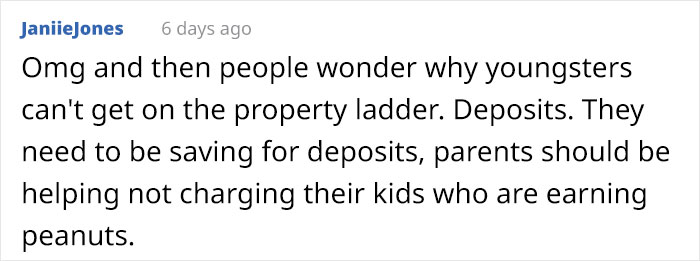
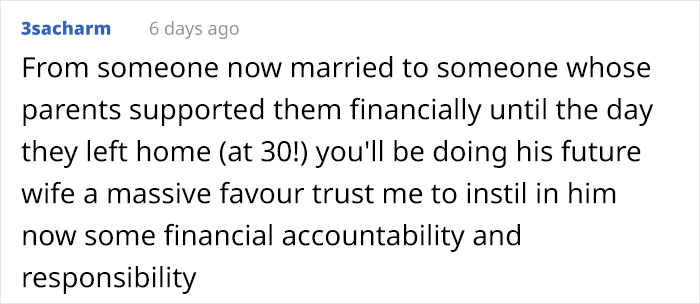

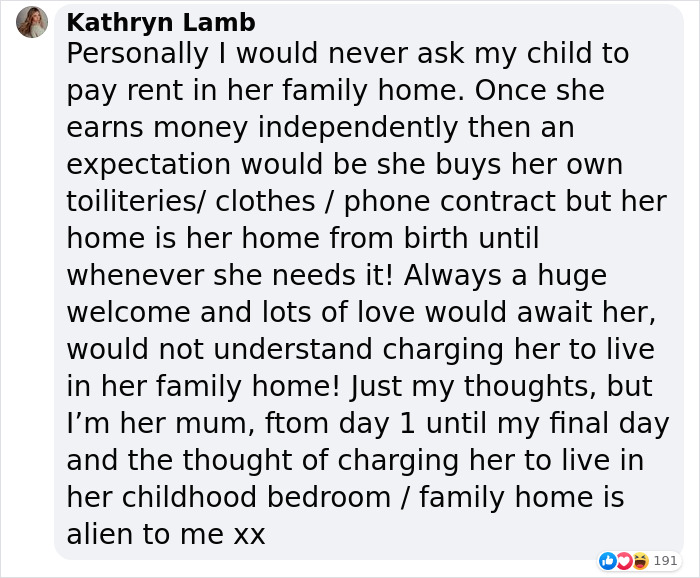



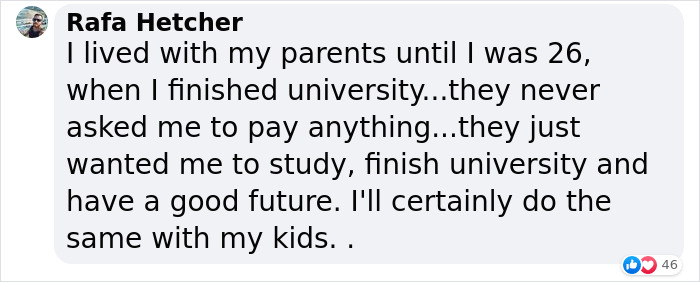
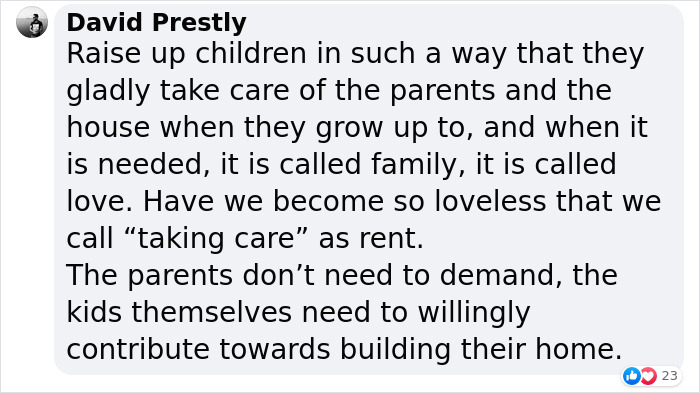
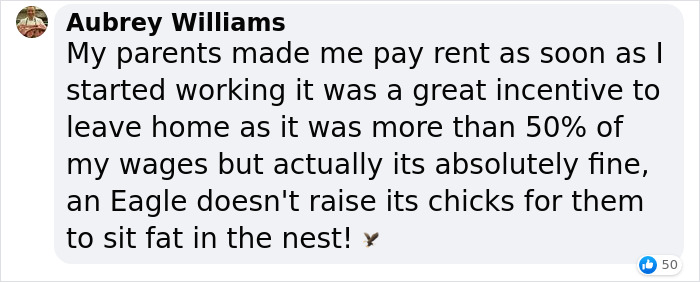













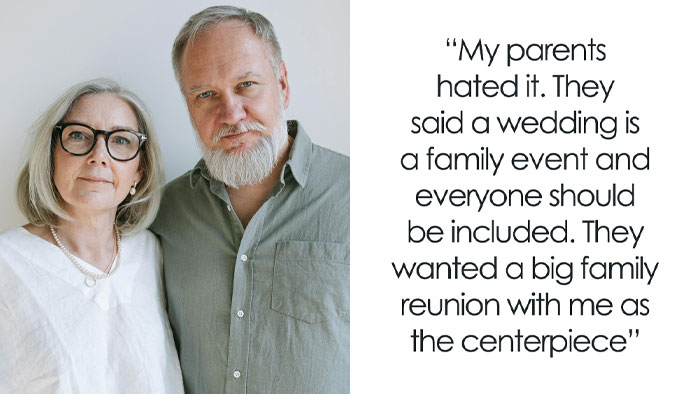






























40
43